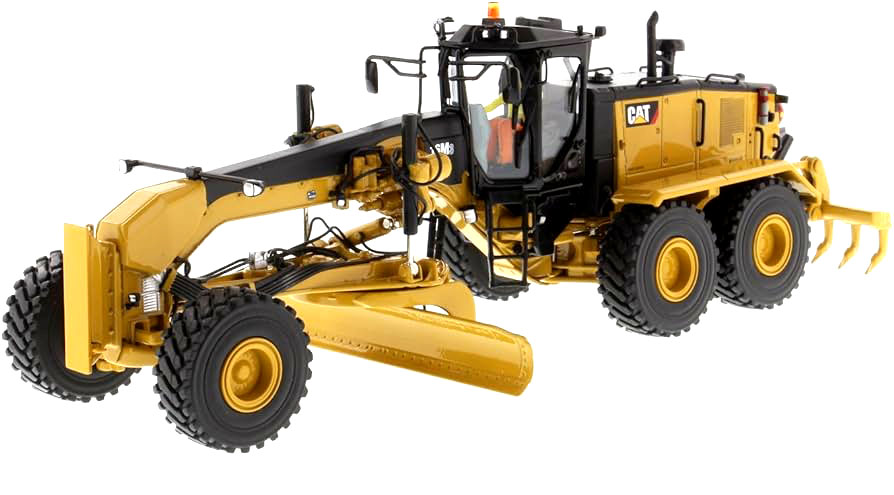
As the global community races forward to achieve the climate goals of the Paris Agreement, road transport decarbonisation stands as one of the most pressing challenges. With over 75% of global inland transport emissions coming from on-road freight and passenger vehicles, the need for sustainable solutions in road construction and maintenance has never been more critical. AggreBind, with its patented soil stabilisation technology, offers a highly effective and environmentally friendly approach to reducing the carbon footprint of road infrastructure.
Addressing the Carbon Footprint of Road Transport
The upcoming International Road Transport Decarbonisation Workshop, co-hosted by Austroads, the National Transport Research Organisation (NTRO), and PIARC, aims to discuss strategies for reducing emissions in road transport, including innovative technologies and policy considerations. As governments and businesses explore solutions like electric road systems and alternative energy production, a key area of focus must also include the infrastructure that supports these technologies. AggreBind’s solutions align perfectly with these goals, offering a low-carbon, cost-effective, and sustainable alternative for constructing and maintaining roads.
How AggreBind Supports Road Decarbonisation Efforts
AggreBind addresses multiple aspects of road decarbonisation, positioning it as a leader in sustainable road construction:
- Reduced Material Transport: One of the primary contributors to the carbon footprint of road construction is the transport of materials such as aggregates and asphalt. AggreBind stabilises road bases with in-situ soils, eliminating the need for transporting heavy materials over long distances, which significantly reduces emissions from fuel usage. This is particularly valuable in remote regions or developing countries, where importing construction materials can be both costly and environmentally detrimental.
- Utilisation of Recycled and Waste Materials: AggreBind is designed to work with recycled materials such as construction waste, mining byproducts, and even hard plastic waste, contributing positively to the circular economy. By incorporating these materials into the road base, AggreBind not only reduces the carbon emissions associated with excavating new materials but also helps to solve the waste management problem.
- Energy-Efficient Road Construction : Traditional road construction is energy-intensive, requiring large amounts of fuel for machinery and material transport. AggreBind enables roads to be built with less machinery and in less time, thereby reducing overall energy consumption and project timelines. This helps construction companies meet tight deadlines while minimising the environmental impact.
- Longer-Lasting Roads with Less Maintenance : Roads constructed using AggreBind require less frequent maintenance compared to conventional roads. The stabilised soil creates a stronger and more durable base that is resistant to erosion, extreme weather, and heavy traffic loads. This reduces the need for repeated repairs, further lowering the carbon emissions typically associated with ongoing road maintenance.
Supporting Global Decarbonisation Goals
 The decarbonisation of road transport isn’t just about transitioning to electric vehicles or solar-powered highways—it also requires a fundamental shift in how roads themselves are constructed and maintained. AggreBind’s technology fits into the broader strategies discussed in the upcoming Melbourne workshop, including national plans for alternative energy production and infrastructure policies aimed at reducing the overall environmental impact of road transport.
The decarbonisation of road transport isn’t just about transitioning to electric vehicles or solar-powered highways—it also requires a fundamental shift in how roads themselves are constructed and maintained. AggreBind’s technology fits into the broader strategies discussed in the upcoming Melbourne workshop, including national plans for alternative energy production and infrastructure policies aimed at reducing the overall environmental impact of road transport.
By enabling governments and corporate contractors to build roads using locally sourced materials and sustainable practices, AggreBind supports the move toward net-zero emissions. Whether it’s through dust control, erosion prevention, or stabilising hazardous waste, AggreBind offers a versatile solution that meets the needs of a rapidly decarbonising world.
A Call to Action for Industry Leaders
As the conversation around road transport decarbonisation evolves, decision-makers in construction, development, and transportation must consider innovative solutions like AggreBind. By integrating sustainable soil stabilisation into infrastructure projects, organisations can achieve not only cost savings and operational efficiency but also significant reductions in carbon emissions.
In attending workshops like the one hosted by Austroads and NTRO, stakeholders can learn from global experts and explore the latest technological advancements that make sustainable road infrastructure a reality.
You can join the conversation with Austroads and NTRO at their Workshop Thursday 10th October: Road Infrastructure for Road Transport Decarbonisation, register HERE.
For those interested in making a tangible difference in the fight against climate change and embracing circularity, AggreBind stands ready to partner with you on your next green infrastructure project. By choosing AggreBind, you are not only investing in the future of your business, you are contributing to a healthier planet.



